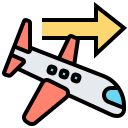The travel industry is undergoing a profound transformation driven by the integration of artificial intelligence and machine learning technologies. These advancements are reshaping how travelers plan, book, and experience their journeys, while also revolutionizing how businesses operate behind the scenes. By leveraging intelligent algorithms and vast amounts of data, the travel sector can now deliver more personalized, efficient, and predictive services, enabling both companies and customers to get more value out of every trip. The strategic implementation of AI solutions is creating new opportunities for growth, optimization, and customer satisfaction across all segments of the travel landscape.
Intelligent Trip Planning
Machine learning models can sift through thousands of options to suggest the best flights, accommodations, and activities based on traveler profiles. By evaluating previous search behavior, budget constraints, and even social media activity, AI-driven platforms construct itineraries that match unique preferences. This not only saves customers countless hours in researching their trips but also ensures that the choices presented are highly relevant and personalized. Travelers benefit from recommendations that evolve with their interests over time, continuously improving the travel planning process with every new interaction.
Dynamic Pricing and Offers
One of the most significant advances powered by AI is dynamic pricing, which allows travel companies to adjust fares and rates in real-time based on demand, seasonality, and individual interests. These algorithms take into account myriad factors from competitor pricing to user browsing patterns, enabling tailored promotions and last-minute deals. Customers receive personalized offers that are both appealing and timely, increasing satisfaction while driving higher conversion rates for businesses. The result is a mutually beneficial relationship where travelers snag better deals, and companies optimize revenue.
Context-Aware Recommendations
AI’s ability to understand context is revolutionizing how travel recommendations are delivered. Machine learning systems can factor in real-time data such as weather, local events, and even a traveler’s current location to suggest the best restaurants, attractions, or activities. This on-the-go personalization ensures that suggestions are always relevant, enhancing the overall experience. By anticipating what travelers might need at each stage of their journey, businesses can cultivate stronger loyalty and engagement.
Previous slide
Next slide
Enhanced Customer Service and Support
AI Chatbots and Virtual Assistants
AI-powered chatbots now serve as the first point of contact for many travelers, capable of handling a wide array of requests around the clock. From answering questions about bookings to assisting with itinerary changes, these virtual assistants provide immediate responses across multiple languages and platforms. By continually learning from previous conversations, chatbots become increasingly effective in resolving issues quickly and accurately, enhancing both efficiency and customer satisfaction.


Predictive Demand Forecasting
Travel businesses rely on precise forecasting to match resources with anticipated demand. AI algorithms process historical data, current events, and external variables to predict booking patterns, allowing airlines, hotels, and operators to optimize staffing, inventory, and pricing strategies. These predictive insights reduce wasteful expenditures and ensure that resources are allocated where they are needed most, maximizing profitability and customer satisfaction.
Route and Traffic Optimization
Transportation sectors within the travel industry benefit significantly from AI-based route planning and traffic management solutions. Advanced analytics help airlines, cruise lines, and ground transportation providers optimize routes for efficiency, minimizing delays and fuel consumption. Machine learning models can adjust plans in real-time based on weather conditions, congestion, or unexpected events, improving punctuality and the overall travel experience for passengers.
Fraud Detection and Security
AI is instrumental in enhancing the security of transactions and protecting sensitive traveler data. Machine learning models continuously monitor for unusual account activities or booking patterns—flags that might indicate fraud or data breaches. By detecting threats in real-time and automating the responses, travel companies can maintain trust, comply with regulations, and offer a safer environment for their customers and partners.
